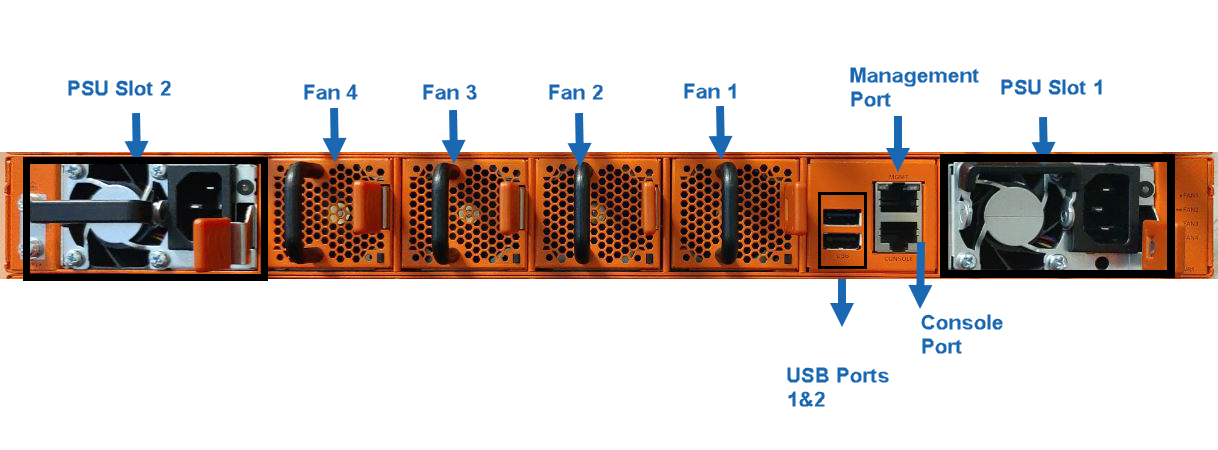Introducing the GigaVUE‑TA25 Chassis
The GigaVUE‑TA25 chassis consists of a 1RU, rack-mountable, 19" wide chassis with network, tool ports at the front and power connections, management, console ports at the rear. Refer to GigaVUE‑TA25 Ports and Description for a description of each of the ports.


GigaVUE‑TA25 Ports and Description
| Port | Description |
|---|---|
| Management |
Use the Mgmt port for remote configuration of the GigaVUE-TA25 Traffic Aggregator over a 10/100/1000 Ethernet network. Refer to installation guide for information on establishing an SSH configuration session with the GigaVUE‑TA25 Traffic Aggregator. |
| Console |
Use the Console port for local configuration of the GigaVUE‑TA25 Traffic Aggregator over a serial connection. The serial settings are 8N1,115,200 bps. Refer to installation guide for information on establishing a serial configuration session with the GigaVUE‑TA25 Traffic Aggregator in a terminal window. |
| Ports x1...x48 |
The GigaVUE‑TA25 provides 48 25Gb/10Gb/1Gb ports. For details about the supported transceivers and cable type, refer to the “GigaVUE Interoperability Matrix”. The 24-port GigaVUE‑TA25 is called GigaVUE‑TA25A. Refer to installation guide for license information to expand the 24-port GigaVUE‑TA25A to 48 ports, and to enable eight (8) 100 Gb/40 Gb ports. |
| Ports c1...c8 |
GigaVUE‑TA25 also includes 8 x 100Gb/40Gb ports (c1..c8). In addition, you can also configure port modes that let either two (c1 and c5) of the 100Gb/40Gb ports operate as four logical 25Gb/10Gb ports . Once a 100Gb/40Gb port has been configured to operate as four 25Gb/10Gb ports, cable it to an optical patch panel or breakout panel, which takes a QSFP28/QSFP+ input from the GigaVUE‑TA25 and splits it to four independent 25Gb/10Gb output ports. The c1 and c5 ports accept QSFP28/QSFP+ connections using 100G/40G SR and PLR4 transceivers. |
| Reset Button |
This button on the front panel next to Gigamon logo allows you to reset GigaVUE‑TA25 without having to unplug both PSU’s. Push and hold the button for 5 seconds to reset. |
| Transceivers |
For details about the supported transceivers and cable type, refer to the GigaVUE-OS Compatibility and Interoperability Matrix |



